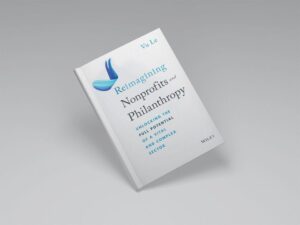
November 5, 2018; New York Times
Last week, Dr. Otis Brawley, the chief medical officer of the American Cancer Society, resigned due to some of the organization’s corporate partnerships. One of those partnerships was with embattled Herbalife International, which just paid a $200 million fine for running a Ponzi scheme. Other current partnerships include chain restaurants Long John Silver’s and Twisted Kilt.
The New York Times says that while Brawley himself has not disclosed his reasons for leaving, others report that he was unhappy with ACS’s growing reliance on businesses with questionable health effects or practices. This rise in partnerships follows a decade-long decline in revenues from fundraising, dropping from a peak of around $1 billion in 2007 to $736 million in 2017.
This appears to be an increasingly familiar pattern in disease charities, as we wrote in May of this year when ACS sold its headquarters in White Plains. A quick look at the organization’s 990s shows that net assets declined by $200 million in the three-year period between 2013 and 2016.
These marketing-fundraising relationships raise questions about mission violations. For instance, speaking on the partnership with Long John Silver’s, Jonathan H. Marks, associate professor of bioethics, humanities, and law at Pennsylvania State University, said it “undermines the integrity of the American Cancer Society.”
The American Cancer Society’s website encourages readers to prepare fish and poultry by baking, broiling, or poaching rather than by frying or charbroiling. But the society is partnering with a fast food company whose leading menu items are fried. Integrity requires consistency.
In the case of Herbalife, some of the cross-marketing gets close to suggesting a link between the supplements and relief from cancer, though a “disclosure” from ACS is usually included.
Sign up for our free newsletters
Subscribe to NPQ's newsletters to have our top stories delivered directly to your inbox.
By signing up, you agree to our privacy policy and terms of use, and to receive messages from NPQ and our partners.
This is, however, not the first time such concerns about partnership-based conflicts have been raised about ACS. As we reported in 2011, a report published that year on the conflicts of interest in the organization was simply titled, “More Interested in Accumulating Wealth than Saving Lives.” Authored by Dr. Samuel Epstein, chairman of the Cancer Prevention Coalition, it was at that time endorsed by the chair of the House Judiciary committee and medical policy research group. The report found that half the members of its national board of directors drew funding from ACS. Nancy Koche wrote then in her NPQ article:
Conflicts of interest are also evident in the ACS program priorities, according to the report. Its breast cancer prevention initiative encourages women to have regular mammograms; ACS claims this is their best hope to prevent this form of cancer. ACS advertisements in Massachusetts recently featured two women in their twenties; the ads promised that early detection results in a cure nearly “100 percent of the time.”
The national organization lists five radiologists on its board and has strong ties with major manufacturers of mammography equipment like Eastman Kodak and General Electric.
Other health organizations question the need and risk of annual mammograms. The National Academy of Science warns the breast is highly sensitive to radiation and annual checkups can increase breast cancer risk by 10 percent. Additionally, The U.S. Prevention Task Force has recently recommended that routine mammograms should be delayed until the age of 50 and practiced every two years until the age of 75.
But ACS dismisses minimally, non-toxic alternatives as “unproven.” The report also lists ACS major business donors who manufacture and sell products containing carcinogenic ingredients.
From 1998 to 2002, ACS hired two public relation firms whose clients list also included several tobacco and fast food industry leaders. The contracts of both firms were dismissed when this relationship was revealed by the Cancer Prevention Coalition.
So, I guess we must ask the question: What might have driven Brawley to resign now?—Ruth McCambridge










